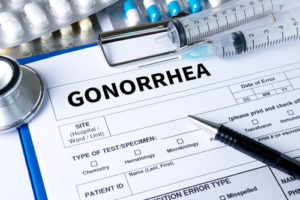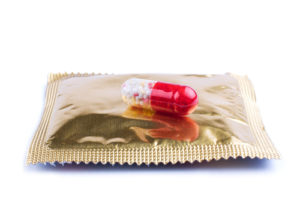Back to Main Page
What is it?
Gonorrhoea is a bacterial infection. In 2014 in Ireland, 1320 cases of gonorrhea were diagnosed with 15-24 year olds making almost half of those diagnosed. If treated early, Gonorrhoea is not likely to lead to any complications however if is left untreated, it can spread to other parts of the body and cause serious problems.
In women, gonorrhoea can lead to pelvic inflammatory disease which can lead to pelvic pain , ectopic pregnancy and infertility.
In men, gonorrhoea can cause infection in the testicles and prostate gland which can lead to infertility problems.
In rare cases, untreated gonorrhoea can spread through the body causing swelling of the joints and tendons, skin lesions, inflammation around the brain and spinal cord (meningitis) and heart which can be fatal.
How is it passed on?
- Having unprotected vaginal, anal or oral sex
- Intimate contact with genitals
- Infected mother to baby during birth
Symptoms
Approximately 5-10% of males and 50% of females who are infected by gonorrhea have no symptoms
- Yellowish/Greenish-white discharge from penis,vagina or anus,
- Stinging/Burning sensation while urinating,
- Swelling of the foreskin,
- Pain/Tenderness in the testicles or prostate gland (males), lower abdominal area (females)
- Bleeding between periods,
- Itching in the penis, vagina, anus,
- Eye infections such as a discharge or “red eye” (HSE, 2016)
Diagnosis
Women
In females, all that needs to be taken is a small swab from the cervix (neck of womb) or vagina which can be taken by the nurse or the individual themselves.
Men
You may be asked to provide a urine sample- Do not pass urine for 1-2 hours beforehand.
Treatment & Prevention
It is very important to receive treatment as soon as possible. The infection will not go away and if untreated, it will cause serious health concerns. Gonorrhoea is treated with antibiotics which can be taken orally or as an injection. The treatment is 95% effective, therefore it is very important that you come in for a follow up test.
Avoid sexual intercourse and intimate contact with your partner until you have both finished the course of treatment (HSE,2017).
For more information on gonorrhoea, click on any of the following links;